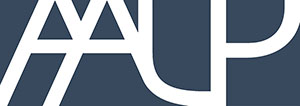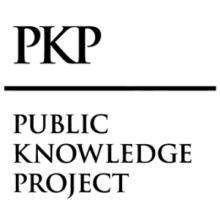Keynotes
John Unsworth, University Librarian, Vice-Provost for Library and Technology Services, and Chief Information Officer at Brandeis University
Peter Berkery, Executive Director of the Association of American University Presses
Recordings of the keynotes and panels are now available, courtesy of New Prairie Press.
Posters are now available via the Journal of Librarianship and Scholarly Communication.
Wednesday, March 5
Welcome & Opening Keynote
John Unsworth, Brandeis University
Panel: Organizational Alignment (Salon III)
There are many players in the scholarly communications space including librarians (current service/collections models), the academic institution (campus administration, research centers, colleges and departments), researchers (the professional field/discipline), and publishers of all stripes (commercial publishers, scholarly societies, university presses). What kinds of interactions do library publishers have with these various groups as they strive for organizational alignment and where are the most promising opportunities for future collaborations? This panel provides an overview of the variety of relationships library publishers engage in on and beyond their campuses to help move scholarly communications forward.
Charles Watkinson (chair), Purdue University Press
Faye A. Chadwell, Oregon State University Libraries and Press
Catherine Mitchell, California Digital Library
John Sherer, University of North Carolina Press
Alignment with Editor Expectations
Editors have a variety of resources already available to them and expectations for service levels from library publishers. Some want a simple platform for publishing plain text papers; some bring their own copy editors and other support personnel; others want a full suite of publication services. Editors will speak about faculty perceptions, services offered, services needed, why, and how it might affect the P&T process.
Kristy Archuleta, Kansas State University (slides)
Joshua Neds-Fox, Wayne State University
Alignment with Other Publishers
This session provides an opportunity to learn about relationships between library and other publishing operations. Discussion will include cooperative activities, separate activities, differences in operations, funding sources, and new opportunities for collaboration.
Lisa Bayer, University of Georgia Press
Jennifer Laherty, Indiana University
Alignment with Faculty and Student Needs
Library publishing can benefit student learning by involving students in the production and dissemination of scholarship in higher education. This session will address the wide spectrum of ways library publishing can engage with students and student work, from content creation to participation in editorial and technical aspects of publishing. Session participants will collectively explore and debate: What are the constraints/challenges to library publishing for and with students? How can library participation in publishing writ large help students? How best to engage with faculty, librarians and students in order to succeed in library publishing?
Lauren Coats, Louisiana State University
Stephanie Davis-Kahl, Illinois Wesleyan University
Panel: Infrastructure Alignment
The academic library makes various commitments to infrastructure support, development, and maintenance in support of its scholarly publishing programs. Infrastructure may be collaborative, exploratory, innovative, or outsourced. How do library-based publishing programs make such commitments, and what initiatives presently underway will provide the next wave of infrastructure options. And further, how does the academic library context inform setup and infrastructure choices in ways that are distinct from similar decisions across the scholarly publishing landscape.
Martin Halbert (chair), University of North Texas
Curtis Fletcher, Alliance for Networking Visual Culture
Jeremy Morse, Michigan Publishing
David Ruddy, Cornell University
Present and Possible Future of Publishing Platforms
Interactive session allowing discussion between platform vendors, the sponsors of open-source alternatives, and the audience covering such topics as status of current platforms – what’s working, migration, hosted vs. non-hosted, what do libraries want/need as they move forward with publishing initiatives, and more.
Rebecca Kennison, Columbia University
Brian Owen, Simon Fraser University / Public Knowledge Project
Irene Perciali, bepress
Beyond the Article: Publishing Essential Content
Libraries are uniquely positioned to provide publishing solutions to the challenges faced by their campus constituencies, yet to emerge and remain viable to commercial alternatives, they must provide service that does more than replicate traditional models. In this session, presenters will explore issues that call on library publishing programs beyond open access, peer-review journal publication through a consideration of the following questions: Are libraries equipped to handle infrastructure issues (e.g., research data) through existing digital repository programs; how are the challenges around scientific research reproducibility inflecting the service needs of publishing partners; how do libraries conduct incubation and R&D to inform the growing publishing service suite?
Jake Carlson, Purdue University (slides)
Karen Estlund, University of Oregon
Rights Agreements in Library Publishing
Library publishing programs often find themselves in need of formal agreements on rights. These agreements may be with editors, scholarly societies, authors, indexers, or any of the other parties with which we work. We may be signing them on behalf of our organization, writing them, or just advising our partners on their development. Creating them involves legal and policy decisions, and can be complex and time-consuming. The discussion will draw on experiences in crafting or deciphering these policies, considerations and implications of the decisions made and the questions raised in planning and practice.
Kevin Hawkins, University of Michigan (slides)
Kevin Smith, Duke University
Thursday, March 6
Panel: Policies Alignment
What is the mission of library publishing? How does it align with the mission of the library? The university? How does it differ from the mission of other publishing organizations, and in what ways does it vary from library to library? This panel will explore the different policy areas involved in library publishing (including copyright, selection, and assessment) and the ways they align with mission at all levels.
Kevin Smith (chair), Duke University (slides)
Tom Hickerson, University of Calgary (slides)
Lisa Macklin, Emory University
Cyril Oberlander, SUNY Geneseo (slides)
Selection and Eligibility in Library Publishing
Should library publishing follow the same model of acquisitions as more traditional publishers? Should they instead offer publishing services to their university community? Should they focus on traditional publication types or on supporting new modes of publishing? This session will explore the types of policy decisions that library publishers need to make around selection and eligibility, and enable discussion of possible models.
Korey Jackson, Oregon State University (slides)
Paul Royster, University of Nebraska-Lincoln (slides)
Alignment with OA Publishing Policies
DOAJ, OASPA, faculty resolutions and federal grant requirements: how can libraries comply with them? Should we? When such policies are in conflict with what our authors and editors want, how do we juggle our responsibilities? In this session, we will examine the ramifications for library publishing of the varied landscape of open access requirements.
Tim Deliyannides, University of Pittsburgh
Micah Vandegrift, Florida State University (slides)
Closing Keynote
During his first twelve months as AAUP’s new executive director, Peter Berkery has visited over 40 university presses in order to learn first-hand the challenges and opportunities facing this critical component of the scholarly communications ecosystem. Peter will share the observations he’s made during his travels, offering both an environmental scan and some thoughts about the curation of scholarship in the digital age.
Peter Berkery, Association of American University Presses

